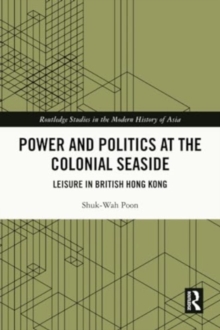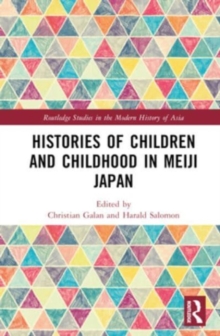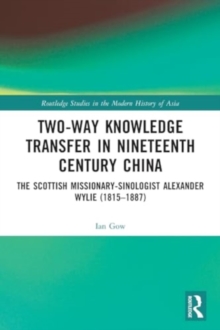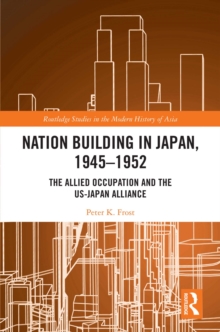
Japanese Diplomacy and East Asian International Politics, 1918–1931 Hardback
by Ryuji Hattori
Part of the Routledge Studies in the Modern History of Asia series
Hardback
- Information
Description
This book provides an overall picture of East Asian international politics during the early interwar period and examines the various foreign policy trends of the major powers involved, including Japan, China, Britain, the United States, and the Soviet Union.
Based on extensive original research, it posits that East Asia experienced four waves of international change during the interwar period: the transition to the post-World War I international order; the appearance of Nationalist China and the Soviet Union as actors in East Asian international politics; the Japanese invasion of Manchuria; and Japanese implementation of the North China Buffer State Strategy.
It considers the new challenges brought about by each of these waves, how the powers – particularly Japan, Britain, and the United States – were able to meet these challenges by working together, and how this became more difficult as time went on.
It argues that the Washington System – the international order established at the 1921–1922 Washington Naval Conference – was not a break with the past, as is frequently argued, on account of new forms of foreign policy, including the ideological approaches of the United States and the Soviet Union, but that rather spheres of influence diplomacy continued as before.
In addition, in discussing Japanese foreign policy, the book provides a comprehensive picture of the diversity of views towards China among Japanese actors and the ways these shifted over time. The Open Access version of this book, available at www.taylorfrancis.com, has been made available under a Creative Commons CC-BY-NC-ND 4.0 license.
Information
-
Out of StockMore expected soonContact us for further information
- Format:Hardback
- Pages:320 pages, 7 Tables, black and white; 1 Halftones, black and white; 1 Illustrations, black and white
- Publisher:Taylor & Francis Ltd
- Publication Date:12/01/2024
- Category:
- ISBN:9781032675930
£130.00
£104.59
Information
-
Out of StockMore expected soonContact us for further information
- Format:Hardback
- Pages:320 pages, 7 Tables, black and white; 1 Halftones, black and white; 1 Illustrations, black and white
- Publisher:Taylor & Francis Ltd
- Publication Date:12/01/2024
- Category:
- ISBN:9781032675930



